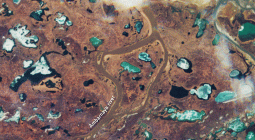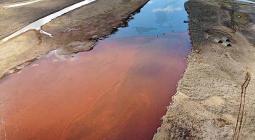Mauritius calls for urgent help to prevent oil spill disaster.
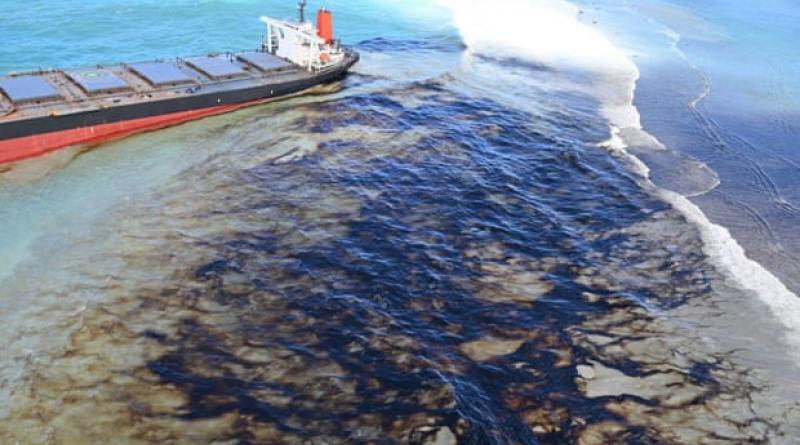
Stranded oil tanker is breaking up, threatening even greater ecological devastation.
People living in Mauritius have described the devastation caused by an oil spill from a stranded tanker and called for urgent international help to stop the ecological and economic damage overwhelming the island nation.
More than 1,000 tonnes of fuel has already seeped from the bulk carrier MV Wakashio into the sea off south-east Mauritius, polluting the coral reefs, white-sand beaches and pristine lagoons that attract tourists from around the world.
But experts say the ship – which still has 2,500 tonnes of oil onboard – is cracking up, threatening an even greater ecological and economic disaster.
Pravind Jugnauth, the prime minister of the Indian Ocean nation, said response crews had managed to stem the leak for now, but were bracing for the worst. “The cracks have grown. The situation is even worse,” he told reporters late on Sunday. “The risk of the boat breaking in half still exists.”
Locals on the island have questioned why more was not done to avert disaster when the ship first ran aground on 25 July.
Fezal Noordaully, a taxi driver from Mahébourg, one of the worst affected coastal villages, said the whole community was in shock.
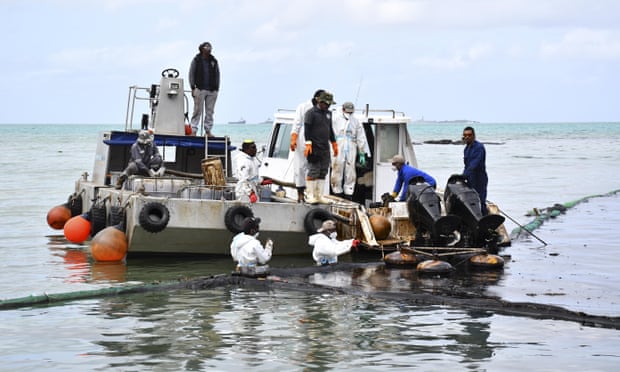
“I am so sad. I’ve lived here all my life. This is a catastrophe for the region and I don’t think the sea will recover soon … The authorities did nothing for days. Now they are but it’s too late. I am angry.”
Josué Dardenne, 42, a small boat tour operator, said the Covid-19 pandemic had already made life hard on the island. “The whole region we operate in has been affected. Our business has stopped. It has been bad for months because of the pandemic but now it’s going to get worse.”
Doris, 63, who did not want to give her full name, said: “I don’t think I can come to the shore again to see this. My heart will break in two. I will stay indoors. But even if I don’t see it, I can smell it. There is no escaping from it.”
Thousands of volunteers, many smeared from head to toe in black sludge, have ignored official instructions to stay away, stringing together miles of improvised floating barriers made of straw in a desperate attempt to hold back the oily tide.
Japan and France have both said they will help with the operation but campaigners say that is not enough and have called for a full-scale coordinated international response.
Happy Khambule, from Greenpeace Africa, said: “Thousands of species around the pristine lagoons of Blue Bay, Pointe d’Esny and Mahébourg are at risk of drowning in a sea of pollution, with dire consequences for Mauritius’s economy, food security and health. Greenpeace Africa stands with affected Mauritian coastal communities and calls on the UN and all governments to support Mauritius’s cleaning efforts.”
Mitsui OSK Lines, which operates the vessel owned by another Japanese company, promised on Sunday to “make all-out efforts to resolve the case”.
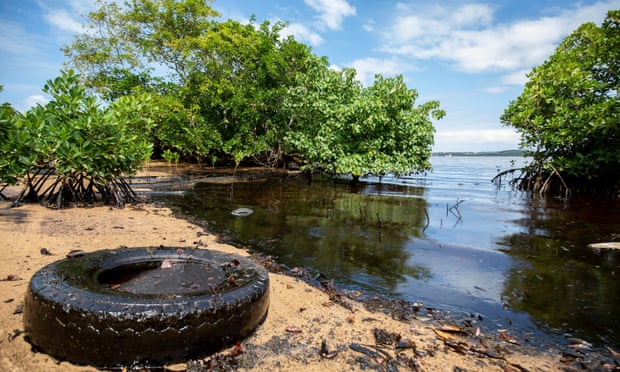
“We are terribly sorry,” the shipping firm’s vice president, Akihiko Ono, told reporters in Tokyo.
But some fear the damage is already done. Aerial images show the scale of the disaster, with huge stretches of crystal-clear seas around the marooned cargo ship stained a deep inky black. Thick muck has coated mangrove forests and unspoiled inlets up and down the coastline, exacting irreparable harm and undoing years of painstaking conservation work, environmental activists say.
The slick has already begun drifting further up the coast, fanned along by strong winds and currents.
“I think it’s already too late. If the ship breaks in two, the situation will be out of control,” Vassen Kauppaymuthoo, an oceanographer and environmental engineer, told AFP. “We’re talking about a major disaster that is progressing, and it’s getting more complicated hour by hour.”
10 August 2020
The Guardian


